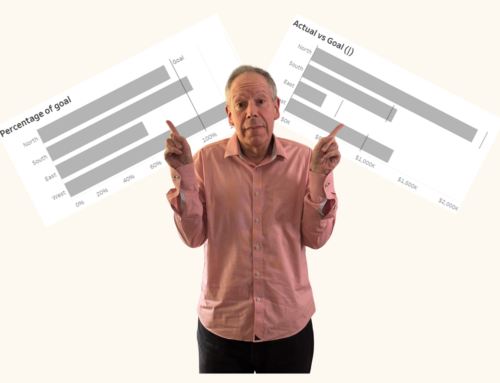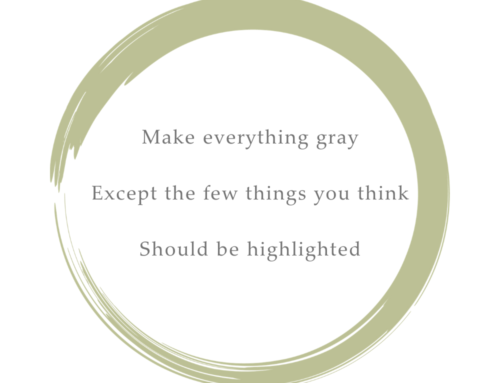In Part One of this series I discussed why the Tableau support community is unique and why you should care. In Part Two I shared my thoughts on the early years of the community and how one person in particular set the tone for sharing knowledge and expertise. In this final post I make recommendations on the things you can do to ensure that the community continues to thrive.
What you can, and should do, to ensure the community thrives
I rely on this community to inspire me, cheer me on, and help me when I need it.
I don’t want to lose this invaluable asset, so I’m going to enlist you to contribute to its wellbeing, assuming you are not already doing so. Here are some things you can do.
Ask for help
If you can’t find what you need through a web search, ask for help as it will help the community as a whole. While counterintuitive, asking for help will generate a discussion that will lead to solutions that will help not just you but others that are having or will have the same problem you have.
And just where should you ask for help? Tableau’s community forum is a great place to start. If you look you will see a lot of Zen Masters who have posted questions, not just answers, through the years.
In addition to asking, if you want to observe noteworthy Tableau activity, make sure to check out the Twitter hashtag #tableau and also check out the list of Tableau-related tweeters Andy Cotgreave has assembled here.
Show the love
If someone has helped you or something has inspired you, send them a “thank you” e-mail, launch a tweet, comment that person’s blog, but above all please let the person who helped you know you appreciate what he / she has done (and in my case feel free to send dark chocolate and / or red wine).
Cheering each other on is a big reason the community thrives.
Post your work to Tableau Public.
If you create something worthwhile, share it with the world. Tableau Public makes it easy, and it’s free.
If you recall from Part One, I stated that Tableau Public is a masterstroke in fostering community and visualization excellence in that it provides a free service for people to post their work. The public will in turn remark on the work, but the really amazing thing is that a Tableau user can download packaged workbooks to see how they work.
Consider this great “how-to” example from Josh Milligan.
Notice the “Download” button in the bottom right corner. With Tableau Public I can do more than just interact with the viz; I can download the workbook and see how the person built it.
Help others whenever and wherever you can.
You may not be able to pay back the person or people that helped you, but you can help others. Do not feel pressure to change the world or have the same impact as a Joe Mako or a Jonathan Drummey, but there’s a lot you can do including participating on the Tableau forum, writing a blog, attending a user group meeting (live or virtual), helping a non-profit understand their data, or just commenting on someone else’s work.
With respect to the forum, try “lurking” (just hanging out and observing the various conversations) to see if this might be an outlet for your abilities. If nothing else you’ll learn a great deal.
With respect to blogging, the barrier to entry has never been lower and this is a great way to find your voice and contribute to the community. Indeed, Andy Cotgreave maintains that if you can have a Google account you can create a blog and publish a post in fewer than three minutes.

Figure 3 — Dan Montgomery, Paul Banoub, Anya A’Hearn, and Jewel Loree stopping traffic and evangelizing blogging at the 2014 Tableau Conference.
Do not celebrate or reward mediocre work.
We should, as a community, be working to improve the art and should not reward stuff that isn’t good. I’m not saying that you should be a jerk (remember, there are no jerks in this community, at least not yet) but if you see something that you know can be better, please let the person – and the world – know what you would do to make it better.
I’ve written about this on several occasions (please see My Problems with a Company’s Iron Viz Competition and Ask These Three Questions.)
Incidentally, people critique my work all the time and I’m grateful for the feedback. Indeed, if I have any “high-stakes” dashboards I want to publish I will always ask both colleagues and laypeople to review the work before it goes live (please see the “Usability” section of Your Tableau Public Viz is Ugly *and* Confusing.)
Don’t be too hard on yourself
I remember something Joe Mako told me several years ago:
I like Tableau because it allows me to fail faster.
Do not be afraid to fail, and to fail easily and often. It takes time, study, and practice to get good at data visualization and Tableau. Do not be afraid to post something on Tableau Public and ask for help or criticism. Most people will offer constructive help and you’ll get better, fast.
I look forward to seeing your work, reading your tweets, and pondering your questions.










